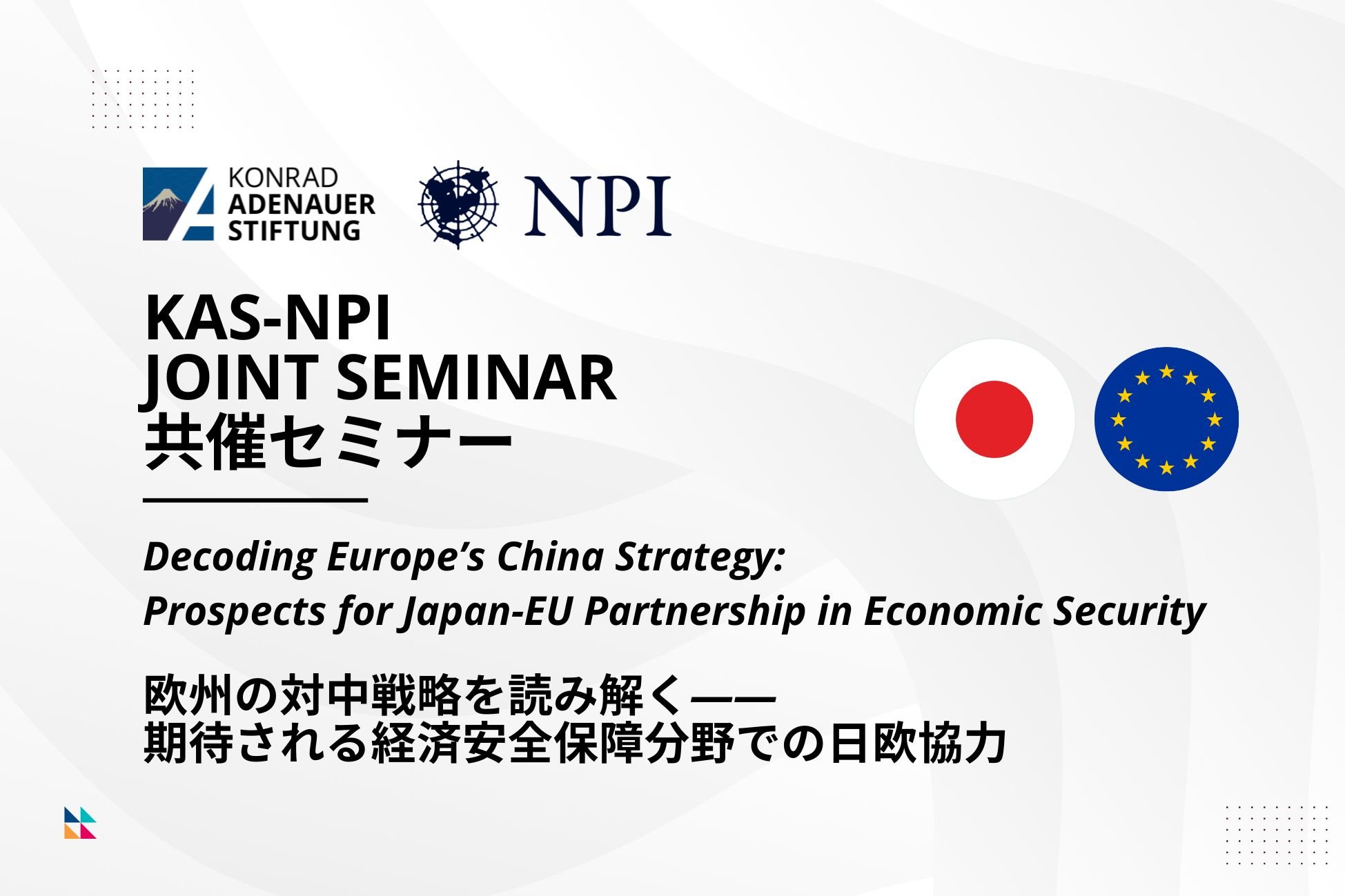2024/12/09
NPI and KAS co-host a seminar "EU-Japan Cooperation on Critical Raw Materials & Supply Chains Under Geopolitical Risks"
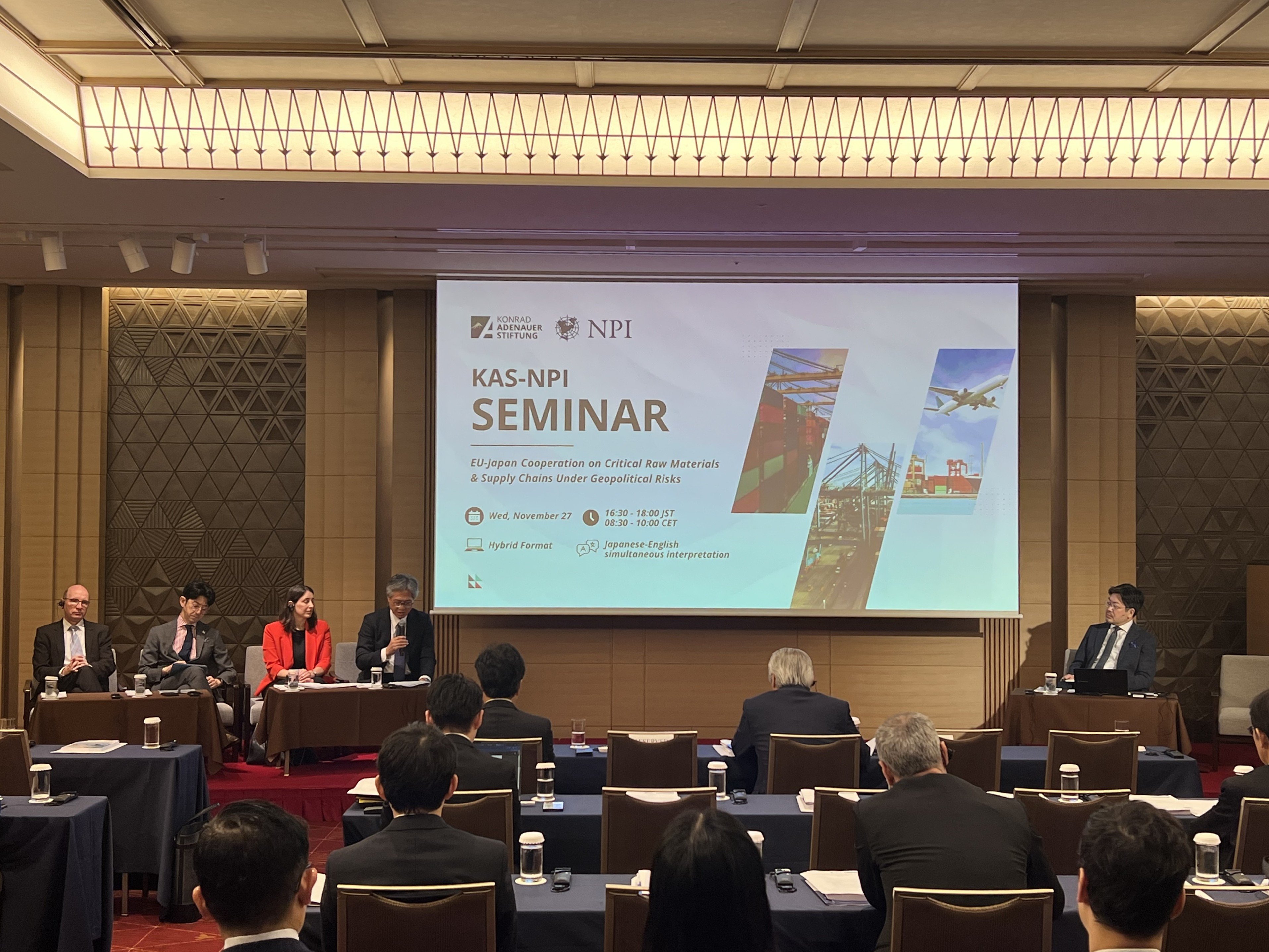
Panel discussion
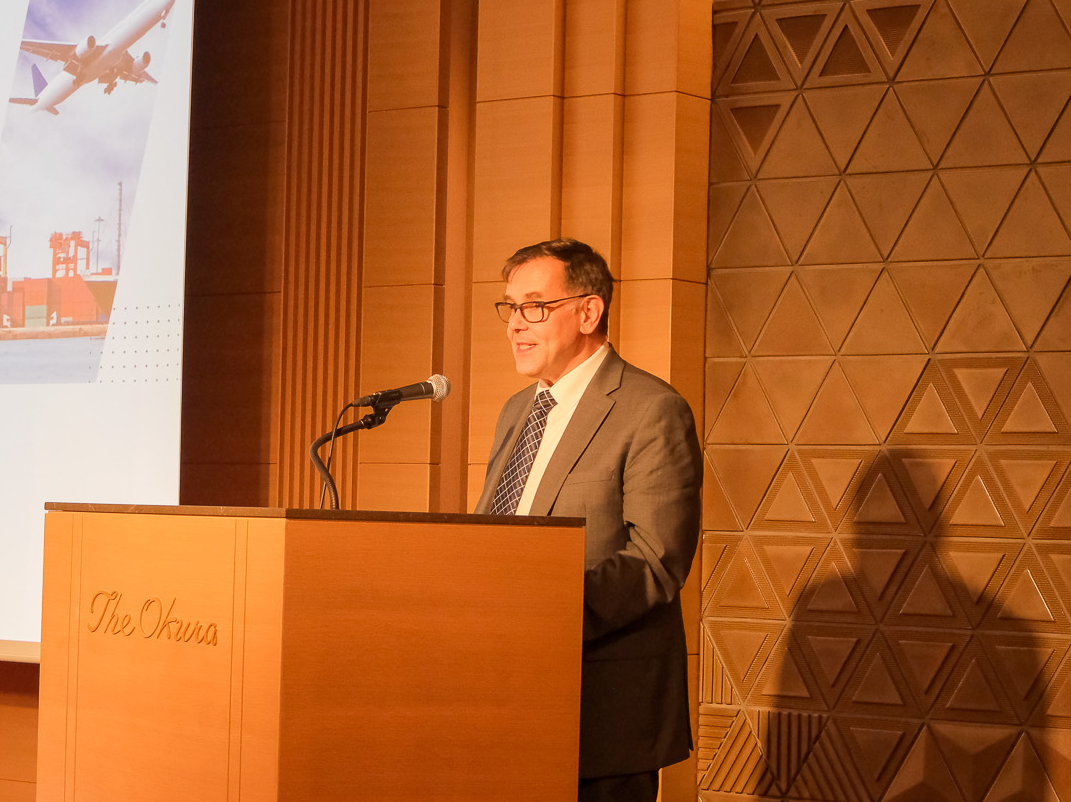
Greetings from Paul Linnartz, Country Representative Japan / Director of Economic Programme Asia (SOPAS), KAS Japan
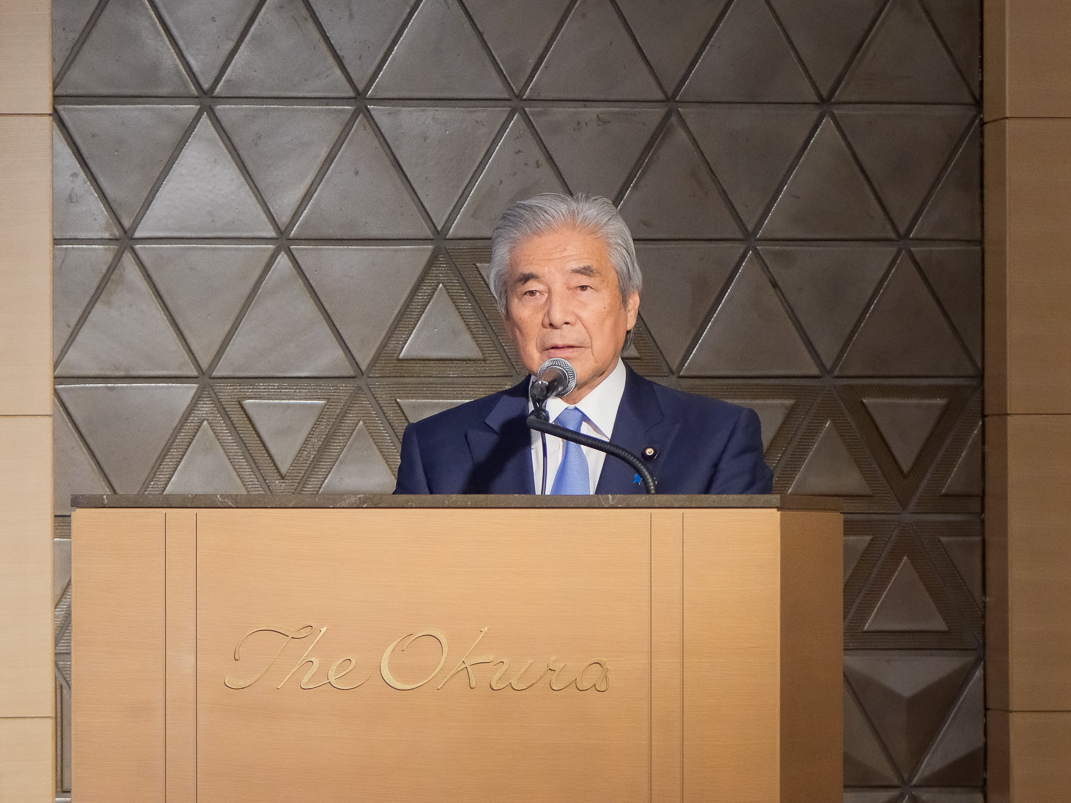
Greetings from Hirofumi Nakasone, Vice Chairman and President of NPI
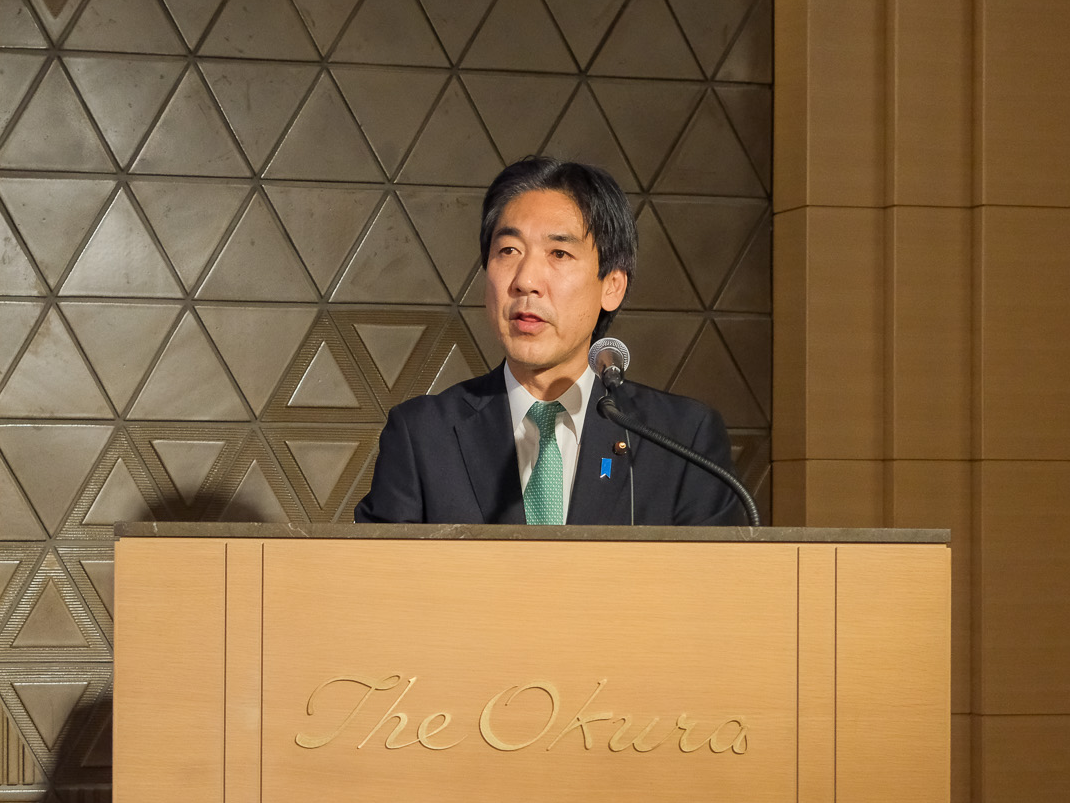
Greetings from Minoru Kiuchi, Minister in charge of Economic Security
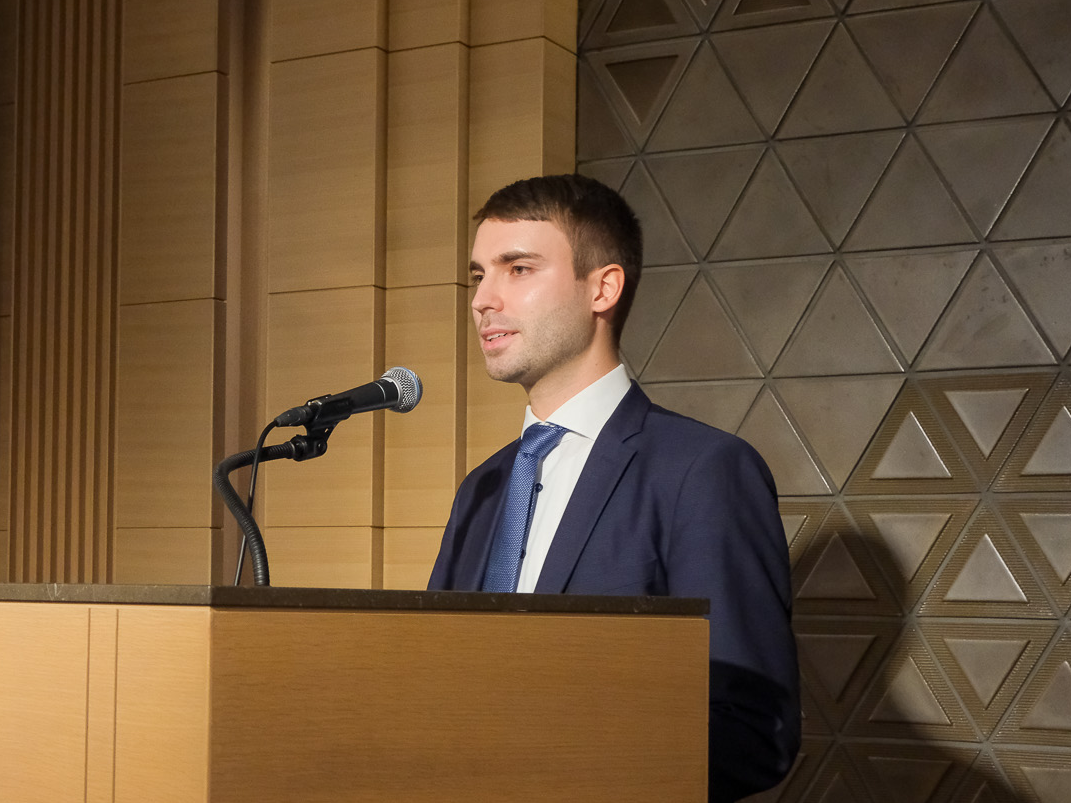
Presentation of the joint paper
On November 27, Nakasone Peace Institute (NPI), together with Konrad-Adenauer-Stiftung (KAS), held a special seminar entitled "EU-Japan Cooperation on Critical Minerals & Supply Chains Under Geopolitical Risk" at the Hotel Okura Tokyo.
The seminar opened with a greeting from Paul Linnarz, Country Representative of Japan / Director of Regional Economic Programme Asia (SOPAS), KAS Japan. He thanked the moderators and panelists and explained how KAS and NPI, partnering in the field of economic security, have been able to put together a joint paper on the timely topic of critical minerals. He also introduced Tim Peter and Jürgen Matthes who came to Japan from Germany to join the seminar in person.
Hirofumi Nakasone, Vice Chairman and President of NPI, introduced the economic security-related initiatives that KAS and NPI have been implementing since the MoU was signed in December last year.
Next, Minoru Kiuchi, Minister in charge of Economic Security, delivered a speech. Minister Kiuchi mentioned that the first Japan-Germany Economic Security Dialogue was held in Berlin on November 21, and stated his view that cooperation between Japan and the EU, and between Japan and Germany in the field of economic security will contribute to maintaining and strengthening the international order, and that it is necessary to continue to share expertise and work closely together.
In the first part of the seminar, Tim Peter, Policy Advisor for Competitiveness of Europe, Economy and Innovation Dpt. Analysis and Consulting Div, KAS Berlin HQs, gave an overview of the joint paper "EU-Japan Critical Raw Materials Alliance." He explained that the intentions of this paper are (1) to clarify the opportunities for cooperation between Japan and the EU, (2) to strengthen Japan's ability to counter economic coercion as well as to gain economic benefits by integrating the financial power and markets of the EU and Japan, (3) to provide a path for the EU to quickly and reliably implement the Critical Raw Materials Act, and that JOGMEC has a lot of experience in strengthening the critical minerals supply chain, and (4) to incentivize the EU to take bold and necessary measures such as establishing an EU Raw Materials Agency and allocating a significant budget at the European level.
In the second part, with Michito Tsuruoka, Associate Professor, Faculty of Policy Management, Keio University as moderator, four panelists discussed the current situation and future responses regarding critical minerals and supply chains in Japan and the EU.
Kazunari Tanaka, Director-General of Trade Policy Minister's Secretariat / Deputy Director-General (Trade and Economic Cooperation Bureau & Manufacturing Industries Bureau), Ministry of Economy, Trade and Industry, spoke about the current status and challenges of strengthening the resilience of the supply chain for critical minerals, stating that efforts to secure the supply of critical minerals will continue to be strengthened, in particular by (1) securing stockpiling, (2) diversifying supply sources, and (3) strengthening responses throughout the entire supply chain.
Adeline Hinderer, Minister Counsellor, Head of Trade, Economic Affairs, and Green Transition Section, Delegation of the European Union to Japan, introduced the current status and challenges of EU policies related to economic security and supply chain resilience, including with regards to critical minerals, which is key to strengthening EU competitiveness. The EU is rolling out several initiatives, including the Critical Raw Materials Act, EU Chips Act, the Net-Zero Industry Act; the EU has concluded 14 strategic partnerships on raw materials with producing countries and is also including provisions in its trade agreements. Japan's JOGMEC approach to supply security is inspiring for the EU: EU-Japan dialogue is ongoing bilaterally and internationally in fora as G7, Conference on Critical Materials and Minerals, Minerals Security Partnership.
Tsuyoshi Kawase, Professor, Faculty of Law, Sophia University stated that trade agreements such as WTO (World Trade Organization) and similar FTAs (free trade agreements) are essential for building supply chains, and that trade frameworks that focus on strengthening supply chains without market access commitments, such as IPEF (Indo-Pacific Economic Framework), are effective when combined with FTAs such as CPTPP (Trans-Pacific Partnership). He also stated that traditional trade agreements are essential as the foundation for building resilient supply chains, that free trade does not undermine national security, and that it is important to strengthen the rules-based free trade system. He shared his view that the rules-based international order and free trade will contribute to strengthening supply chains and ultimately to the economic security of Japan and the EU.
Jürgen Matthes, Head of International Economic Policy, Financial and Real Estate Markets Research Unit, German Economic Institute (IW), spoke about the EU's derisking efforts and the measures needed to reduce dependency on China. He noted that the European Commission plays a leading role in derisking and economic security from China, but the Commission has limited powers, and that Germany has formulated its first China strategy that emphasizes derisking, but its implementation has been delayed and incomplete for several reasons. He pointed out that the genetic characteristics of the German export model are hindering the promotion of derisking and economic security: Accordingly, efficiency-oriented firms are used to take business decisions without government intervention within the framework of Germany's social market economy. As a consequence, he argued that the government has to change this framework in a smart way in order to increase the incentives for derisking. He also stated that the EU needs to adapt to changing circumstances and learn from Japan, for example, and that after the inauguration of the Trump administration, Chinese products diverted from the US would increase pressure to protect the EU market.
During the Q&A session, topics discussed included how to balance political/diplomatic logic with business logic (economic interests) when it comes to the supply of important raw materials in times of emergency, how Japan and the EU will determine whether an act constitutes economic coercion, and the impact of the inauguration of the Trump Administration in the US on Japan-EU cooperation.
In closing remarks of the discussion, Associate Professor Tsuruoka expressed the view that (1) Japan and the EU can learn from each other about their efforts in economic security, (2) while acknowledging the fact that measures to enhance economic security inevitably incur cost, it needs to be seen in relation to risks of failing to take appropriate measures for economic security (3) when responding to economic coercion in cooperation with other partners, we need to ask ourselves whether we are prepared to help others, despite obvious cost and risks, and (4) collecting and analyzing intelligence regarding economic security is becoming increasingly important, and this is an area that Japan needs to improve its capability.
◆Presenter of the joint paper
・Tim Peter
Policy Advisor for Competitiveness of Europe, Economy and Innovation Dpt. Analysis and
Consulting Div, KAS Berlin HQs
◆Moderator of the panel discussion
・Michito Tsuruoka
Associate Professor, Faculty of Policy Management, Keio University
◆Panelists
・Kazunari Tanaka
Director-General, Trade Policy Minister's Secretariat / Deputy Director-General (Trade and Economic
Cooperation Bureau & Manufacturing Industries Bureau), Ministry of Economy, Trade and Industry
・Adeline Hindler
Minister Counsellor, Head of Trade, Economic Affairs, and Green Transition Section, Delegation of
the European Union to Japan
・Tsuyoshi Kawase
Professor, Faculty of Law, Sophia University
・Jürgen Matthes
Head of International Economic Policy, Financial and Real Estate Markets Research Unit,
German Economic Institute (IW)


